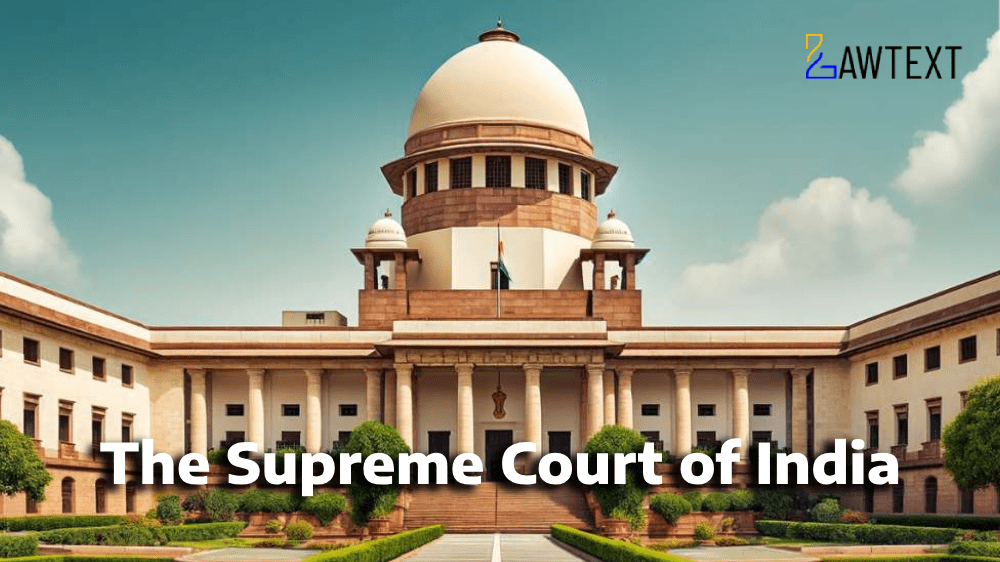

The Supreme Court, in this appeal, quashed the FIR filed under Section 376 IPC, citing the consensual nature of the relationship between the complainant and the accused, which spanned five years. The Court highlighted the delay in filing the FIR and the lack of prima facie evidence of sexual intercourse under the misconception of fact. The charge under Section 313 IPC was also dropped due to lack of supporting evidence.
This appeal challenges the Allahabad High Court’s dismissal of a writ petition seeking quashment of an FIR filed under Sections 376 and 313 IPC. The petition was filed under Article 226 of the Constitution and involved the exercise of the Court’s power of judicial review to prevent abuse of court processes.
The Court heard the counsel for the appellant (accused) and the State, as well as the complainant’s counsel.
The complainant alleged that the accused established a physical relationship with her on the false promise of marriage, which led to her pregnancies and abortions. The complaint stated that the relationship started when she was a high school student, and despite promising marriage, the accused later refused.
The FIR revealed the alleged offense occurred from January 2013 to January 2018, but the FIR was only registered on 21 February 2018, indicating a significant delay.
The Supreme Court initially stayed proceedings in 2018, but later modified the order in 2023, allowing the investigation under Section 313 IPC to continue. The investigation concluded with no evidence to support the charge of abortion under Section 313 IPC.
The investigating officer, after re-examining the complaint, concluded that no material supported the offense under Section 313 IPC, but the investigation under Section 376 IPC remained pending.
The Court considered whether the allegations constituted prima facie evidence of rape under Section 376 IPC, focusing on whether the complainant’s consent was obtained under a misconception of fact.
The Court observed inconsistencies in the complainant's statements, particularly regarding consent and the long-standing nature of the relationship, which suggested the relationship was consensual.
The High Court had relied on various judgments but failed to address whether the allegations revealed a case of consensual sex rather than rape. The Supreme Court referred to Bhajan Lal’s case, highlighting situations where FIRs can be quashed under Section 482 CrPC.
The High Court dismissed the petition without considering critical facts, such as the long-term relationship and the delay in filing the FIR.
The Court applied the principles from State of Haryana v. Bhajan Lal, categorizing cases where FIRs can be quashed, including those based on absurd or improbable allegations.
The Court referred to earlier judgments that distinguished between false promises of marriage and consensual relationships, ruling that an eight-year relationship did not fit the definition of rape under false pretenses.
The Court stressed that the complainant’s own admission of living as husband and wife with the accused negated the claim of consent under misconception.
The delay in filing the FIR and the facts presented in the complaint led the Court to conclude that the relationship was consensual, and the allegations did not constitute rape under Section 376 IPC.
The Court found this to be a case where the inherent powers under Section 482 CrPC should have been exercised by the High Court to prevent abuse of process.
The Supreme Court quashed the FIR, holding that there was no prima facie case to proceed under Section 376 IPC and that the charge under Section 313 IPC had already been omitted.
The ruling emphasized the difference between consensual relationships and rape under false promises of marriage. The Court reiterated that an extended consensual relationship cannot be categorized as rape unless there is clear evidence that consent was obtained under a false promise of marriage from the beginning. The Court also reinforced the use of inherent powers under Section 482 CrPC to prevent misuse of legal processes.
Quashment of FIR, False Promise of Marriage, Section 376 IPC
Criminal Law, FIR Quashment, Rape, False Promise, Consent, Section 482 CrPC, Article 226, Misuse of Process
Citation: 2024 LawText (SC) (10) 161
Case Number: Criminal Appeal No. of 2024 (Arising out of SLP (Crl.) No. 9371 of 2018
Date of Decision: 2024-10-16
Case Title: Lalu Yadav Versus The State of Uttar Pradesh & Ors.
Before Judge: (C.T. Ravikumar J. , Rajesh Bindal J.)
Appellant: Lalu Yadav
Respondent: The State of Uttar Pradesh & Ors.